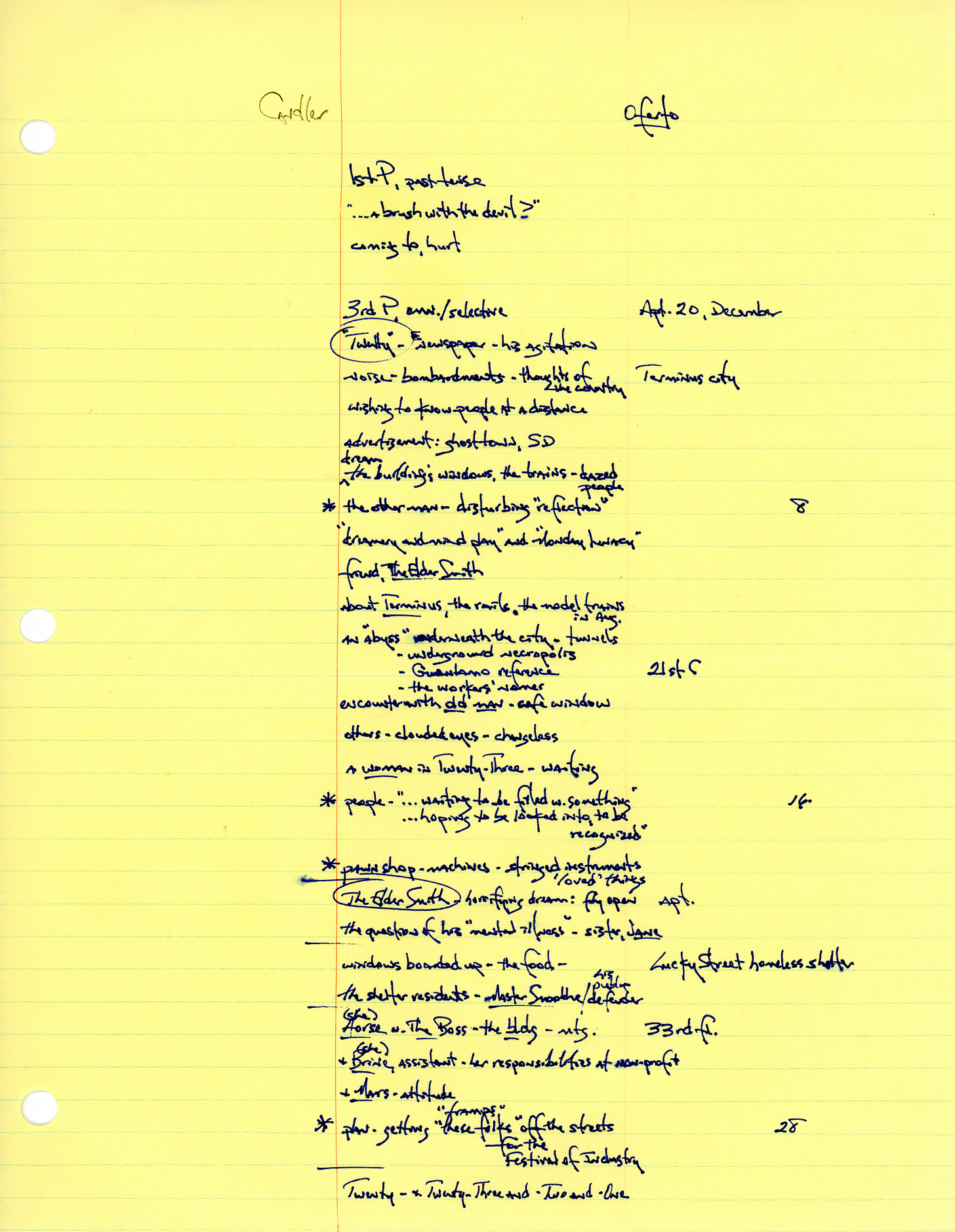I heard the news a few days later, in early October. I was in England with my son, Charlie, when I learned that, thousands of miles away, and a few days prior, Kevin McIlvoy had died of a sudden heart attack in the middle of a doubles tennis match in Asheville.
I was staying at a friend’s house in Cambridge, rummaging through her mother’s dusty heirloom volume on William Blake. The news hit me when some unnameable urge to look at my phone led me away from the book. I had just finished reading this sentence: “In Blake’s view life should be a poem, a free and astonishing thing.”
It was a convergence too good to name coincidence, because Mc embodied Blake’s vision unlike anyone I have ever known. There is a certain symmetry to the fact that Mc turned so wholly to verse in his last years, but Mc’s life was already “a poem, a free and astonishing thing.”
I had come to know Mc through my friend Judith Welchel, a superlative writer who had been a student of Mc’s in the Warren Wilson MFA Program where he taught for many years. I was a naive and irrationally intrepid former academic who had recently made the it-seemed-like-a-good-idea-at-the-time decision to leave a tenured position, move halfway across the country, and start writing fiction with zero knowledge of what I was getting into. Based on Judith’s recommendation and my wife’s prudential judgment, I turned to Mc for guidance and critique on a sprawling and semi-coherent novel I was then flailing my way through. Mc saw something in it worth spending time with and devoting his superhuman energy for reading—and encouraging—other people’s work.
Yesterday, on my way back to Asheville from a weekend in Georgia, I listened in on a zoom call with hundreds of Mc’s friends, former students and colleagues, who called in to pay tribute to him. I am overwhelmed to be a tiny part of such a large family of people who all equally felt as though Mc had singled them out for his generous attention, his life-sustaining encouragement, and his capacious wisdom.
I did not know him nearly as well as many others did, and had less than a decade of earthly friendship with him, but like so many others, my relationship with Mc left me changed. He had greater confidence in my early attempts at fiction than perhaps he should have, but he never failed to discern in my “pages,” as he always called them, something worth salvaging, worth nurturing, something good enough to cut to pieces and reassemble, to discipline into a healthier form.
The work that would become my forthcoming non-fiction narrative, Prologue to the South, would not have existed without Mc. I shared with him drafts of two essays that form the genesis of the book project, and without Mc’s uncommonly musical ear, the two pieces may have fallen like seeds into the stony places, as in the parable of the sower. But Mc arrested their waywardness, and called them into some other form, allowed their tinny shells to fluff out and resonate with new, unanticipated life.
I could never repay that sort of generosity whose real name is love: nor would Mc, I think, want me to try. He simply lived as an offering, a gift.
At my last meeting with him, several months ago at Filo’s Cafe in east Asheville, where we always met, we talked about our kids, his dancing lessons with Chris, his recent and richly fruitful forays into poetry. We talked philosophy and theology, St. Augustine and Bashō, about his Catholic past and his Buddhist present. And of course, about writers we both admired, and maybe aspired to be like.
He was certainly one of those writers for me, but even more so one of those sorts of people: he seemed to be able to live entirely without the need for possessiveness that is so congenital to all of us. Mc was one of the first people in my life not just to see something of value in my creative work but actively, aggressively, even, to nurture its growth. The sheer prodigality of Mc’s generosity was unfamiliar to me, even a little shocking. Over what would be our final coffee together at Filo’s, he told me that he wanted to keep in touch, but not in just a casual sense. He wanted in—to be involved in my life, and in my work. He wanted to invest his own interest and affection into it, because he believed in it, he believed in me, believed we shared something profound in common. And while he knew that such affinities are not easy to find in this vale of shadows, he was able to intuit them, to hear harmony where others hear only dissonance, and even to hear within a discomforting dissonance something worth listening to.
He had told me how much he enjoyed reading what I had written, and he especially liked it when I wrote about music, as I was doing when I learned about his death. I regret deeply that he will not be able to read the work that he helped to midwife into existence. I do not doubt that he would be proud of it, because Mc never failed to tell anyone how proud of them he was, never failed to share his joy ahead of time, well before it was too late.
Many who were there yesterday still feel—even after Mc was irretrievably lost to us—that he is still somehow present, as I do: his voice still as ubiquitous as the elemental earth. So wherever you are, my friend, thank you for who you have been to me, and to all of us: “blessed are your eyes, for they see: and your ears, for they hear.”





